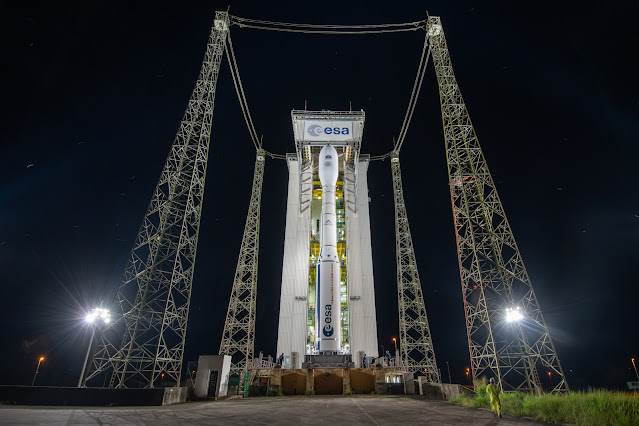Vega-C Rocket VV21 with LARES-2: Ready for Launch | European Space Agency
Vega-C features a new, more powerful first stage, P120C, based on Vega’s P80. Atop that is a new second stage, Zefiro-40, and then the same Zefiro-9 third stage as used on Vega.
The re-ignitable upper stage is also improved. AVUM+ has increased liquid propellant capacity, to deliver payloads to multiple orbits depending on mission requirements and to allow for longer operational time in space, to enable extended missions.
The P120C motor will do double service, with either two or four units acting as strap-on boosters for Ariane 6. Sharing this component streamlines industrial efficiency and improves cost-effectiveness of both launchers.
With its larger main stages and bigger fairing – which doubles the payload volume compared to Vega – Vega-C measures 34.8 m high, nearly 5 meters taller than Vega.
The new launcher configuration delivers a significant improvement in launch system flexibility. Vega-C can orbit larger satellites, two main payloads or can accommodate various arrangements for rideshare missions. ESA’s upcoming Space Rider return-to-Earth vehicle will be launched to orbit on Vega-C.
Credit: European Space Agency (ESA)
Image Date: July 13, 2022
#ESA #Space #Earth #Satellite #Vega #VegaC #Rocket #VV21 #Lares2 #ASI #Italy #Italia #Physics #Lasers #CubeSats #CommercialSpace #Kourou #Spaceport #FrenchGuiana #SouthAmerica #Europe #STEM #Education




No comments:
Post a Comment